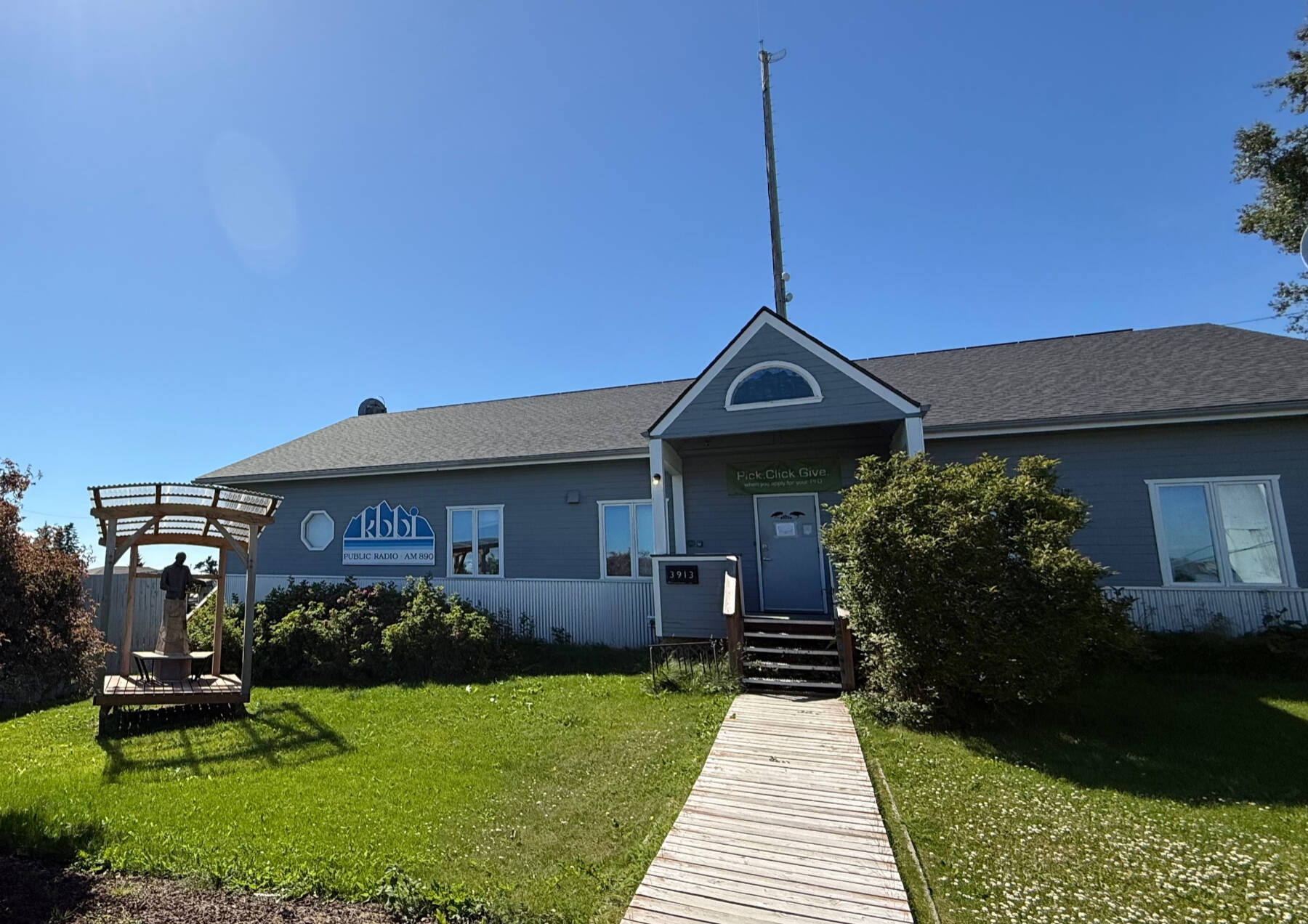KBBI AM 890 and KDLL 91.9 FM join public radio stations nationwide who are impacted by Congress’s rescission of $1.1 billion in federal funding that was previously approved for the next two fiscal years for the Corporation of Public Broadcasting.
For the two peninsula stations, the rescission means the loss of 40% of each of their annual operating budgets.
While both stations maintain that they are not going anywhere for the time being, both staff and listeners will soon see changes in station operations and service.
KBBI General Manager Josh Krohn told Homer News via email last Thursday, following the U.S. Senate’s vote to rescind funding, that they had “been anticipating this for a while now.” He outlined the changes to come at the Homer station, beginning with layoffs implemented for part-time staff, effective July 31.
Starting Aug. 1, KBBI’s local broadcast will begin at 7 a.m. instead of 6 a.m., and the weekend shift will be pre-recorder rather than operated live. Going forward, they will also be ending the afternoon newscast and only host a morning newscast.
As for Coffee Table, KBBI’s local interview program, Krohn said they’ll finish the shows currently booked with senior producer and host Kathleen Gustafson, then have remaining staff pick up the schedule.
“We’ll see how long we can keep this up with three full-time staff, one ¾ time, and one part-time contract reporter,” Krohn wrote. “We’re going to do our best to maintain essential services for listeners, but listeners are definitely going to notice some changes.”
As of last week, according to Krohn, KBBI also began making a new push for additional volunteer help to cover afternoon and evening announcements for weather reports and bushlines, or personal messages intended for a specific individual within the broadcast area.
In their July newsletter sent out last week, the KDLL board of directors thanked the Kenai Peninsula community and listeners for their continued support.
“Local membership has always, and will continue to be, our most important source of financial support to provide quality, reliable and trustworthy news, information and entertainment,” the board wrote.
Like KBBI, KDLL also anticipated the funding cut and developed their budget for the next fiscal year with it — and with the goal of maintaining as much of their current operating capacity as possible — in mind. However, due to the size of the cut, they “will not be able to absorb” the reduction in funding without “significant and notable changes” to their on-air programming.
Specific changes remain forthcoming, as the board works over the next two months to determine “the best path forward for public broadcasting on the Central Kenai Peninsula.”
The newsletter notes that “numerous questions” remain at the national network level that will trickle down to local stations, including potential cost changes to NPR programs, music licensing agreements, and more.
In the newsletter, the board encourages listeners to reach out with questions, concerns, or ways to help, and urges the peninsula community to contact representatives “at all levels” to express their support for public media.
“These are uncertain times. We cannot assume that the effort to fully dismantle public media will stop with this funding decision,” the board wrote. “Local support for public media has always been important. Now, it is imperative.”
Response from Alaska’s senators
The morning after the Senate narrowly approved the rescissions package in a 51-48 vote, U.S. Sen. Dan Sullivan’s communications director, Amanda Coyne, told Homer News via email that Sullivan “for years has been an advocate for funding for our rural stations, and has been working for the last number of weeks with his Senate colleagues and senior White House officials on alternative sources of funding to help keep rural radio stations on the air.”
Sullivan was among those who voted to rescind funding for public broadcasting, as well as $8 billion for foreign aid programs.
According to Coyne, the Trump administration “recently committed” to continued funding to help support Alaska’s “most rural” stations. Currently, she said, there is approximately $10 million available for tribal and Native stations across the U.S. Alaska has 11 Native stations.
“Going forward, Senator Sullivan will continue working hard to provide resources to support as many Alaska rural radio stations as possible,” Coyne wrote.
Sen. Lisa Murkowski voted against the rescissions package, and in a July 17 press release said she “strongly opposed” rescinding funding for the Corporation for Public Broadcasting. During the Senate’s vote on the package last Wednesday, she introduced an amendment to protect CPB funding, which failed.
“This was just hours after we saw the value of public broadcasting in my state as Alaskans anxiously awaited updates following a 7.3 magnitude earthquake that triggered a tsunami warning,” she wrote. “Fortunately, there was no damage reported from the earthquake, and the tsunami warning was quickly cancelled. But as we see life-threatening natural disasters occur more frequently around the country, that will not always be the case.”

